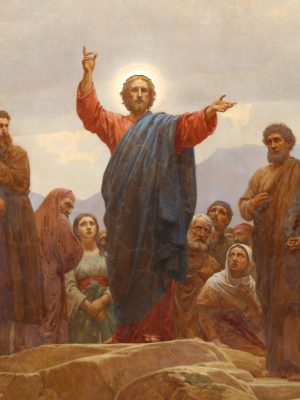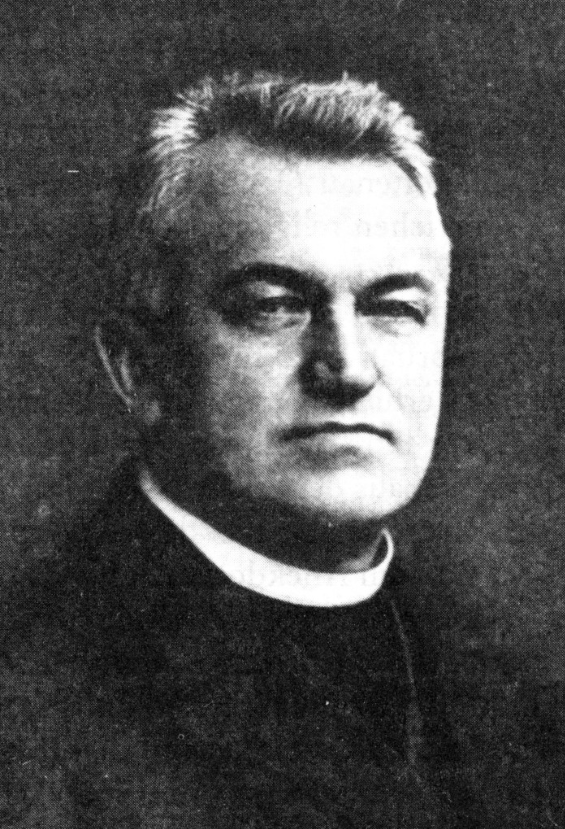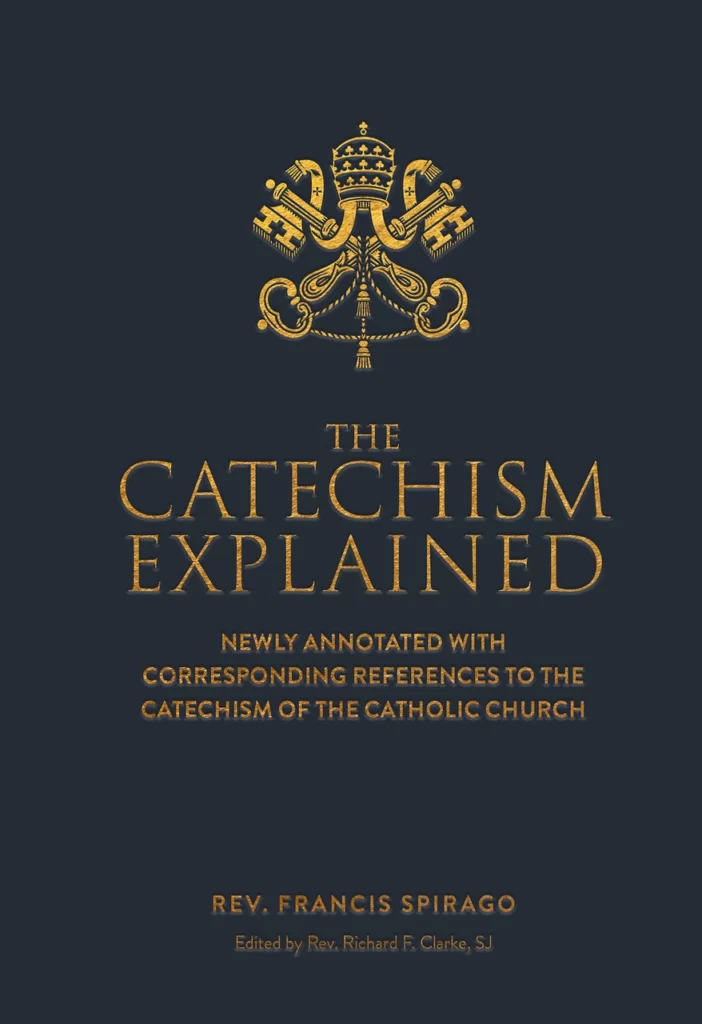The Our Father, taught by Our Lord, is a prayer of great power and should be recited frequently. The Catechism Explained discusses the seven petitions and the word “Amen” contained within this mighty prayer.
THE OUR FATHER
The Our Father is also known as the Lord’s Prayer, because it was taught us by Christ Our Lord Himself.
1. The Our Father takes precedence of all other prayers; it is especially distinguished by its power, its simplicity and its comprehensiveness. There is no more holy and excellent prayer than the Our Father. It has greater cogency than any other prayer, because in it we do not merely pray in the name of Jesus, but in His own words. Of this prayer more than of any other Our Lord’s promise holds good: “If you ask the Father anything in My name, He will give it you” (John 16:23). It is the simplest of all prayers; its words are few, but it is rich in meaning. It is so simple that a child’s lips may utter it devoutly; yet the theologian seeks in vain to sound its depths; it is suited to every class and condition of men. In the Lord’s Prayer we ask for all things that are needful for our soul and our body; it comprises all for which we ought to pray; nothing that can be found in the most excellent of prayers is lacking in it. It is an epitome of the holy Gospel Not only does it teach us the things for which we ought to ask, but the right order in which to ask for them.
The Our Father consists of an address, seven petitions, and the word Amen.
2. The address places the soul in the right disposition for prayer; it awakens within us confidence in God and raises our thoughts to Him.
The word “Father” awakens confidence in God, the words “Who art in heaven” raise our thoughts to Him. Thus at the very commencement of this prayer we make acts of faith, hope, and charity.
We call God Father, because He created us to His image (Gen. 1:27), because the Son of God became our Brother by His Incarnation (Eph. 1:5), and because at baptism the Holy Spirit took up His abode within us, and made us the children of God (Rom. 8:15).
In approaching the great ones of the earth, we are doubtful by what title we ought to address them; it is not so with God. We address Him as Father, and this familiar title pleases Him better than any other. No mortal would have dared to call the almighty Ruler of the universe by the name of Father, had not His only-begotten Son given us permission to do so. God would not have us address Him as our Creator, Lord, or King, because these titles convey an idea of severity, and inspire fear. He would have us call Him Father, because this is a title which bespeaks affection, and love is a far more exalted feeling than fear.
We call God Our Father because we, as brethren, ought to pray for one another.
In the Lord’s prayer the individual prays for all, and all for the individual, hence it is the common prayer of all Christians. Our own needs compel us to pray for ourselves; fraternal charity urges us to pray for others. Our Lord Himself says: “All you are brethren” (Matt. 23:8), and calls the apostles His brethren (Matt. 28:10). The apostles spoke of the faithful as their brethren (Rom. 1:13; 12:1). Those may rightly be called brethren, who have but one Father in heaven.
We say: “Who art in heaven,” because although God is present everywhere, heaven is His throne, and there only is He beheld face to face (1 Cor. 13:12).
3. In the first petition we pray that God may be glorified.
The meaning of the first petition is this: Grant, O God, that we may acknowledge and revere Thy majesty more and more.
To give glory to God is the end of creation, and consequently it is the highest aim of every creature.
4. In the next three petitions we ask for these blessings: Eternal salvation, grace to fulfil the divine will, and the possession of those things which are indispensable to the maintenance of our earthly existence.
The meaning of the second petition is this: Give unto us eternal life after death.
The meaning of the third petition is this: Give us grace to fulfil Thy will as perfectly on earth as the angels do in heaven.
The meaning of the fourth petition is this: Bestow upon us all that is necessary for the maintenance of life, such as food, clothes, money, health.
5. In the next three petitions we pray that three evils may be averted from us: The evil of sin, the evil of temptation, and those evils which are prejudicial to life.
The meaning of the fifth petition is this: Forgive us our sins, as we forgive those who have sinned against us.
The meaning of the sixth petition is this: Deliver us from those temptations to which we should succumb.
The meaning of the seventh petition is this: Avert from us all things which are injurious to life, such as famine, pestilence, war, etc.
The evils mentioned in the last three petitions are exactly opposed to the blessings enumerated above.
Eternal happiness is opposed to sin, which makes us eternally wretched.
The grace of God is opposed to temptation; for grace enlightens the understanding and fortifies the will, whereas temptation darkens the understanding and weakens the will.
The things which are necessary for the maintenance of our life are opposed to those which are injurious to it.
The seven petitions may therefore be divided into three divisions, of which the first has reference to God, the two others to ourselves.
6. The word Amen is the answer of God to the suppliant; in this place it is equivalent to the words: Be assured that thy prayer is heard.
In other prayers the meaning of the word Amen is “So be it,” or: We entreat most earnestly that our prayer may be granted.
As in the Lord’s Prayer the word Amen is to be considered as God’s answer, whenever it occurs in the Mass the priest says it, speaking in God’s name; but at the conclusion of the other prayers and collects of the Church, the server says Amen. Our Lord often employed the word Amen, principally as an asseveration.
The Our Father has from time immemorial been in use in the Church, both in holy Mass and almost all other public acts of worship.
ooo
This article is taken from a chapter in The Catechism Explained by Fr. Francis Spirago which is available from TAN Books.









